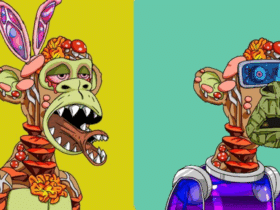Feeling alone and disconnected from others is something that many people suffer with. They may be desperate for human interaction at this time and want to spend time with another or a few people soon.
But, even if this were to occur, it does not imply that their entire existence would manifest itself around another. In other words, their bodily self will be present, but their emotional self will not be.
A Comparison
This is analogous to being really hungry and merely ordering an appetiser at a restaurant rather than a three-course meal. That is undeniably better than nothing, but it will not satisfy them.
If anything, it will only dull their appetite (loneliness), and it won’t be long before they return to their previous state. They’ll have finished their quick meal and may now return to their normal routine.
Hidden
In order for them to acquire the nutrition they require, their emotional self must also be present. Evidently, this will allow them to meet a variety of their requirements.
Together with this, it will allow them to truly participate rather than merely perform a role. When they are with another, they are more inclined to become who they believe another wants them to be.
The Illusion of Self
During this period, they may appear relaxed, joyful, and obedient. They will act more like an extension of another than a separate individual with their own needs, feelings, and desires if they are this way.
Given this, they may need to be in their own company in order to feel connected to themselves. If this is the case, spending time alone will be unsatisfying, as will spending time with others.

Two Options
This might be something they are completely unaware of or something they are well aware of. If they are conscious of it, they may be sick and weary of feeling lonely and losing themselves in the presence of others.
They may eventually come to the conclusion that, as lonely as it is, they prefer to be alone. This will be unpleasant, but it will prevent them from having to put on a show in front of others.
A Weird Situation
It should be common for individuals to feel at ease in their own company as well as in the company of others. This would allow people to connect with who they are, whether they were alone or not.
This would allow people to have deeper relationships with others and experience intimacy. As with intimate relationships, this is likely to be another aspect of their life that they struggle with.
Taking a Closer Look
They are inclined to disguise who they are when they begin to spend time with someone, just as they do in previous relationships. Yet, there may be a period when they are relieved to make human contact with someone to whom they are attracted.
But, as time passes and more is inevitably expected of them, they may be forced to withdraw. This might be because the other person has begun to reveal their sentiments and wants them to do the same, or simply because they are forming a stronger link.
The Importance
Taking all of this into account, and the fact that they lose themselves around others and can only connect with themselves when they are alone, and that they do not feel comfortable when they are near to another, it is apparent that human interaction is not seen positively. On one level, they will desire this since they are self-sufficient, but on another, they will not.
They won’t feel comfortable enough to expose who they are or get too close to someone, therefore they prefer to stay alone. The problem is that, while this seems comfortable, it is eroding them.
A Closer Look
This might indicate that their limits were seldom, if ever, respected throughout their early years, if they have been this way for as long as they can remember. They were then more like an object than a separate individual with needs, feelings, and desires, and this would have resulted in both large and little violations.
They had no choice but to endure what was going on and isolate themselves since they were powerless and dependant on their caregiver/s at this point in their lives. To shield oneself from grief, they would have also detached from their emotional selves.
Defenceless
Losing contact with their emotions and/or withdrawing from everyone would not have changed what was going on, but it would have prevented them from being aware of it. They may then be violated without being completely aware of what was going on.
The person (or individuals) who were supposed to love and protect them would have profoundly traumatised them, preventing them from developing normally, setting boundaries, and preparing them to be afraid of human interaction. These would also have led them to detach from their aggression/fight drive, leaving them vulnerable and unable to defend themselves.
Another Factor
When it comes to maintaining their ground and saying no, it is possible that they will be rejected and abandoned, and their existence will come to an end. When they attempted to establish themselves as a youngster, they were probably rejected and/or abandoned, and when they were abandoned, they probably felt like they were going to die.
By isolating themselves, they eliminate the desire to assert themselves, allowing them to avoid the emotional traumas associated with feeling rejected and abandoned. This is because, just as when they were children, they will be able to disconnect from how they feel; to leave their body and enter their brain.
Awareness
If someone can connect to this and is ready to make a change in their life, they may need to seek outside help. This can be accomplished with the aid of a therapist or healer.
There will be emotional scars to heal as well as trauma to settle. This will also help them to calm down their nervous system and transition it from being wired for protection to being wired for connection.
Oliver JR Cooper is an English author, transformational writer, teacher, and consultant. His incisive remark and analysis touch on many areas of human change, such as love, relationship, self-love, self-worth, inner child, and inner consciousness. Oliver gives hope as well as good guidance in his approximately two thousand eight hundred in-depth writings covering human psychology and behaviour.










